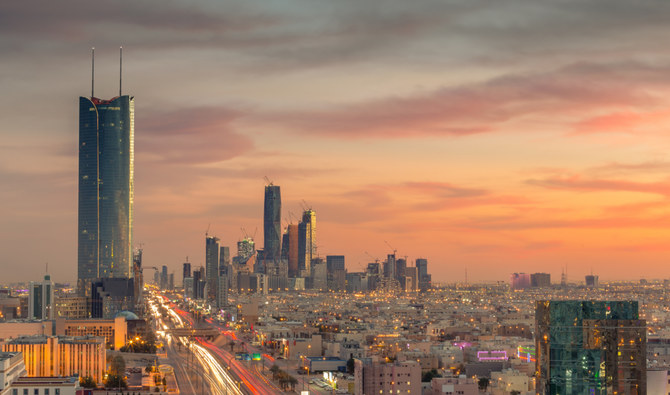
- ARAB NEWS
- 05 Jul 2025

Riyadh seems to be on its way to competing for a spot among the top 10 global cities in less than 10 years.
The political will is there, the funds are available, the strategic plan is clear, which has more than 100 initiatives and over 700 pioneer projects across various sectors.
The city’s landscape will undergo massive changes in a few years and it will be accompanied by efforts to make it a hub for both local and international talent.
Saudis themselves are already noticing signs of a bright future for this city and they are flocking to Riyadh from all corners of the country. The top talent is now in Riyadh filling all government posts and supplying top global companies operating in it with required manpower.
Soon enough, it will even be home to top executives, accountants, lawyers, financial analysts, and bankers who will move with their regional headquarters to Riyadh.
There is nothing that Riyadh can’t afford and it has a bright future indeed. So what does it need further to succeed in its mission?
I think it needs a global culture, and refocusing its efforts to develop more innovation centers. It also needs a vibrant community that accepts change. Riyadh has always been known as a traditional society, however, that is changing now. Yet, there is a Riyadh identity that still distinguishes the original settlers from the newcomers.
The quest for recognition forms a big part of human nature and there is nothing more obvious than the daily struggle of all people to be different and still recognized.
Many cities in the Arab world witnessed periods of urban migration and many of the new urban dwellers lived on the fringes of cities.
Riyadh should not evolve like these cities. It has to create innovation centers across its urban space to make sure that talent and wealth don’t concentrate in a few parts, old or new.
The current situation isn’t sociable. There are plenty of compounds and gated communities that were created in the old days to ensure foreigners enjoy a certain lifestyle.
These communities are where the affluent and the educated global talent live. They have limited interaction with the rest of society.
This can’t go on if Riyadh wants to embrace a global culture. All people must live in the open and all residential buildings or neighborhoods must include people from all sects, religions, and nationalities.
With the spread of innovation centers across the city, it is ensured that people will blend and exchange ideas and advance economic and social systems.
Thanks to the government’s social push, people are starting to accept international norms and become tolerant toward celebrating events such as Christmas. However, we are not there yet and the glass walls that divide the community must fall further.
Another area where most efforts are to be channeled is academia and international schooling. No matter how beautiful a city is or how advanced its infrastructure is, people want to get the best education for themselves and their children.
International schools shouldn’t be a place where only expatriates take their children and they must be accessible to all society members.
This is where global values should be taught and embraced. Additionally, diverse and advanced universities are where top talent grows culturally and knowledge-wise.
Cairo, Beirut, Dubai, and Sharjah are all known for their top American universities and many families are moving there to educate their children. These children will build strong ties to the cities and their colleagues and this will shape their future.
Last, the competition is still fierce for Riyadh. At a time when Riyadh is trying to rebuild its infrastructure to match global standards, other cities are trying to do the same.
NEOM, for example, is building its “Line” to be a walkable community where people can access all their daily needs within 7 to 10 minutes. Riyadh does not only need to compete with NEOM, but with Sweden and Paris.
Inspired by the 15-minute city concept popularized by Paris Mayor Anne Hidalgo in 2020, Sweden is rethinking neighborhood design one street at a time.
An initiative called “Street Moves” is pushing for the one-minute city and invites local communities to participate in designing their own streets’ layouts and urban space.
Sweden is testing this in the capital Stockholm, with a plan to take it nationwide by 2030.
Now, Riyadh has to compete with one-minute Sweden, 15-minute Paris, and 10-minute NEOM.
These small walkable communities are the basis of global innovation centers like Boston’s Kendall Square and Seattle’s Lake Union. And these communities are where startups flourish and where big ideas are born.
It is not enough to host big tech companies but to make sure society will blend. That would be the biggest challenge for Riyadh. Creating a Riyadh identity similar to New York, where all people there are seen as New Yorkers is a real challenge.
In a nutshell, Riyadh needs to focus on creating innovation centers, eliminating cultural barriers in its urban design, designing smaller communities and neighborhoods, and developing educational systems that bring together society.
The rest of the job is very easy and it seems the government has a clear plan on how to transform the city.
• Wael Mahdi is a senior business editor at Arab News and co-author of “OPEC in a Shale Oil World: Where to Next?” Twitter: @waelmahdi